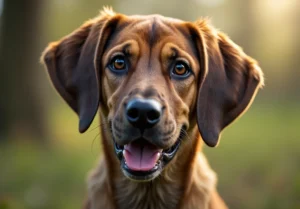Cats and dogs are beloved pets for many people, but have you ever noticed that cats always seem to smell good while dogs, well, not so much? What’s behind this olfactory mystery? Let’s uncover the reasons why cats smell good and dogs smell bad.
Have you ever wondered why cats have a pleasant scent compared to dogs? The answer lies in their grooming habits and the oils produced by their skin. Let’s explore the reasons behind this phenomenon.
Cats: The Fastidious Groomers
Alright, let’s talk about our feline friends and their impeccable grooming skills. Have you ever noticed how cats always seem to have that fresh, clean scent? Well, it’s all thanks to their meticulous grooming habits. Cats are like the neat freaks of the animal kingdom – they spend hours each day grooming themselves to perfection.
Cats use their rough tongues like little brushes to clean their fur and remove any dirt or odors that might be lingering. This constant grooming helps to keep their coat clean and odor-free, making them smell oh so pleasant. So, next time you catch a whiff of that lovely cat smell, you’ll know it’s all thanks to their dedication to staying squeaky clean.
Natural Oils: The Key to a Feline Fragrance
Now, let’s dive into one of the secrets behind that delightful cat aroma – natural oils. Cats have oil glands in their skin that produce oils to help keep their coat shiny and healthy. These oils not only moisturize their skin but also give them that distinctive scent that we find so appealing.
When cats groom themselves, they spread these oils throughout their fur, creating a protective barrier that helps keep them clean and smelling fresh. It’s like their own natural perfume! So, the next time you give your kitty a cuddle and inhale that wonderful scent, remember that it’s all thanks to their amazing natural oils.
And if you’re looking to learn more about how to care for your cat’s skin and coat, check out this helpful resource on cat grooming: Cat Grooming Guide. It’s full of useful tips and tricks to keep your kitty looking and smelling their best.
Doggy Odor: The Scoop on Smelly Pups
Have you ever wondered why dogs tend to have a stronger odor compared to cats? The difference lies in their grooming habits. Dogs have more oil-producing glands in their skin compared to cats, which can lead to a stronger smell. Additionally, dogs are more likely to get dirty and roll in things that can contribute to their odor. Regular bathing and grooming can help keep your furry friend smelling fresh.
Skin Differences: Why Dogs Smell Differently
When it comes to the biological reasons behind why dogs and cats have contrasting scents, it all comes down to their skin composition. Dogs have a different skin pH level compared to cats, which can make them more prone to developing a strong smell. Additionally, the presence of bacteria on a dog’s skin can also contribute to their odor. Cats, on the other hand, have a grooming behavior that helps keep them clean and less smelly.
Dog Grooming Tips to Reduce Odor:
- Regular Baths: Bathing your dog with a gentle shampoo can help remove dirt and oil that contribute to their odor.
- Brushing: Regularly brushing your dog’s coat can help distribute natural oils and prevent matting, which can trap odors.
- Dental Care: Bad breath can also contribute to your dog’s overall odor. Regular dental care, such as brushing their teeth or providing dental treats, can help keep their breath fresh.
- Healthy Diet: A balanced diet can contribute to your dog’s overall health, including their skin and coat health, which can impact their odor.
Diet and Odor: The Link Between Food and Smell
Have you ever noticed how cats often have a pleasant, subtle smell while some dogs can have a more intense odor? Well, one of the reasons behind this difference lies in their diets. Cats are obligate carnivores, meaning their bodies are designed to thrive on a meat-based diet. As a result, their bodies metabolize protein efficiently, leading to less waste being excreted through their skin and fur, resulting in a milder scent.
On the other hand, dogs are omnivores, meaning they can consume a variety of foods, including plant-based ingredients. Some commercial dog foods contain fillers and additives that can lead to more waste byproducts being released through their skin, which can contribute to a stronger smell. Additionally, some dogs may have specific dietary sensitivities that can also impact their body odor. Therefore, ensuring your dog has a high-quality diet tailored to their individual needs can help minimize any strong odors.
Unique Insight:
– Adjust the diet: Consider incorporating omega-3 fatty acids into your pet’s diet, as they can help improve skin and coat health, potentially reducing any unpleasant odors.
Environmental Factors: How Surroundings Influence Smell
The environment in which your pet spends their time can also influence their overall odor. Indoor pets may be exposed to a variety of scents from household cleaners, scented candles, or air fresheners, which can mask or alter their natural smell. Additionally, indoor pets may be more prone to picking up odors from carpets, furniture, or bedding, which can contribute to a less pleasant scent.
Conversely, outdoor pets may have more opportunities to roll in dirt or other substances that can leave a stronger odor on their fur. They may also come into contact with more natural scents from plants, grass, or other animals. Regular grooming and bathing can help mitigate any unwanted odors and keep your pet smelling fresh.
For an in-depth look at how to choose the right grooming products for your pet and maintain their hygiene, check out this helpful resource.
Remember, understanding the factors that contribute to your pet’s odor can help you make informed decisions about their diet, grooming routine, and overall care. By taking a proactive approach, you can ensure that your furry friend always smells their best.
Fun Fact: A Cat’s Tongue is Like a Built-In Brush
Did you know that a cat’s tongue is like a self-cleaning brush? Cat tongues have tiny hook-like structures called papillae that help remove dirt, debris, and loose fur when they groom themselves. This unique feature not only helps cats stay clean but also contributes to their pleasant smell. Unlike dogs, who rely more on rolling in things to mask their scent, cats have a grooming routine that keeps them smelling fresh without the need for extra odorous activities.
Conclusion
In summary, the key to understanding why cats smell good and dogs smell bad lies in their grooming habits and anatomy. Cats have a specialized tongue that acts as a natural brush, helping them stay clean and odor-free. On the other hand, dogs may have a stronger body odor due to their reliance on external means to mask their scent. By recognizing these differences, you can better appreciate the unique scents of your furry friends and understand why they smell the way they do. Next time you snuggle up with your cat or dog, take a moment to appreciate their distinct aromas and the fascinating reasons behind them.
For more in-depth information on pet grooming and care, check out this informative resource: PetMD Grooming Guide.
Alex, a passionate animal lover, has experience in training and understanding animal behavior. As a proud pet parent to two dogs and three cats, he founded AnimalReport.net to share insights from animal experts and expand his knowledge of the animal kingdom.




